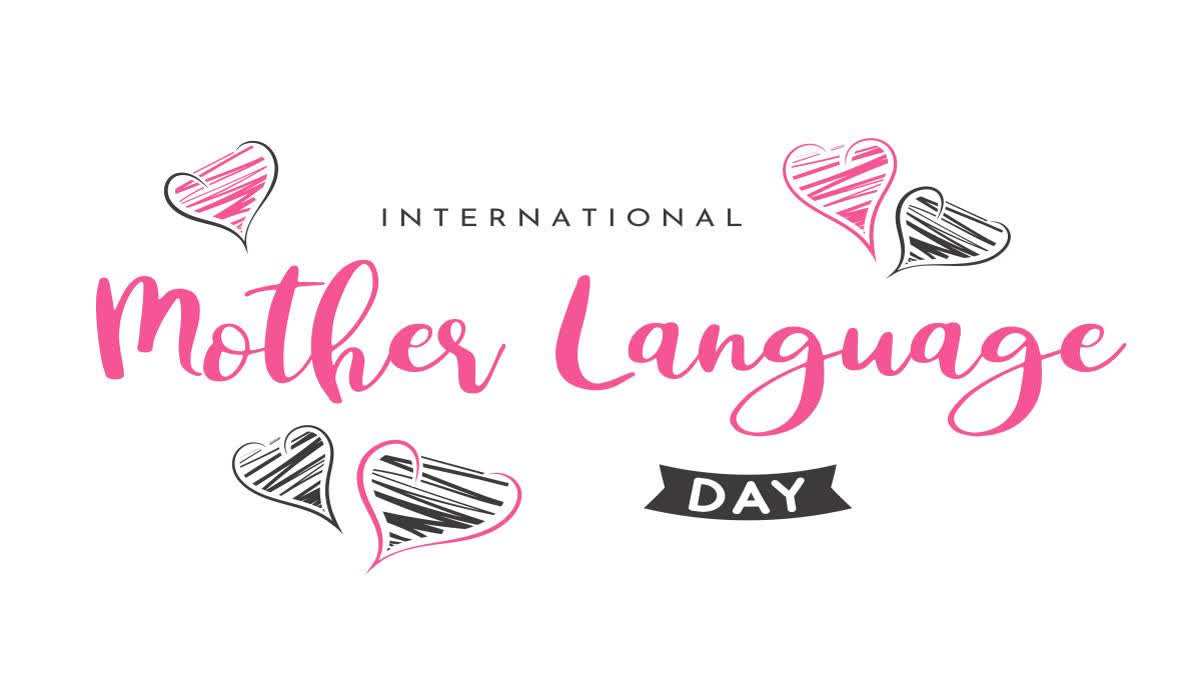Hyderabad: International Mother Language Day is observed every year on February 21 to serve as a global tribute to the significance of language in connecting people and reflecting the cultural diversity that enriches societies across the world. This day holds particular importance in recognising the plethora of languages spoken within countries, promoting a deeper understanding of linguistic heritage and its pivotal role in shaping identities.
India's Linguistic Tapestry: India stands as a testament to linguistic diversity, with 122 languages spoken by more than 10,000 people and 29 languages spoken by over a million individuals. This diversity contributes to a vibrant linguistic tapestry that reflects the cultural richness of the nation. The multitude of languages spoken, including Hindi, English, Bengali, Punjabi, Arabic, Japanese, Russian, Portuguese, Mandarin, and Spanish, underscores the intricate web of communication that binds communities together.
Historical Roots: The roots of International Mother Language Day trace back to a tragic event in Bangladesh. On February 21, 1952, students and activists in East Pakistan protested the Pakistani government's decision to impose Urdu as the sole official language. The ensuing violence, where police opened fire on demonstrators, became a turning point in the struggle for independence for East Pakistan. In 1999, responding to these historical events, UNESCO declared February 21 as International Mother Language Day. Bangladesh played a crucial role in initiating the celebration, with subsequent global observance starting in the year 2000.
Theme 2024: The theme for International Mother Language Day 2024, "Multilingual Education: A Necessity to Transform Education," highlights the importance of implementing bilingual education policies. This theme aligns with broader global objectives, including the International Decade on Indigenous Languages (2022–2032) and the Sustainable Development Goals, emphasising inclusive, high-quality education and lifelong learning. It underscores the need to promote an environment that values linguistic diversity within educational systems.
India's Linguistic Landscape: A 2018 report by the Indian Express reveals the astounding fact that more than 19,500 languages or dialects are spoken in India as mother tongues. This statistic highlights the intricate linguistic fabric woven into the country's social fabric, emphasizing the importance of preserving and celebrating this rich linguistic heritage.
Global Linguistic Diversity: Looking beyond borders, the global linguistic landscape is equally diverse. Approximately 6,900 languages are spoken worldwide, with English, Japanese, Spanish, Hindi, Bengali, Russian, Punjabi, Portuguese, and Arabic among the most widely spoken. However, it's noteworthy that the number of people speaking 90 per cent of these languages is less than one lakh, underscoring the vulnerability of many languages.
The Essence of the Mother Tongue: The mother tongue is more than a mere mode of communication; it is a fundamental aspect of identity. It serves as a mirror reflecting, "Who are you?" Various factors contribute to a person's identity, with designation, residence, relationship, and language standing out as four major differentiators. Unlike a name, which might be shared by thousands, these factors distinguish individuals and contribute to their uniqueness.
Understanding Language Roles: Distinguishing between mother tongue, national language, and official language is crucial to understanding their distinct roles in society. The mother tongue is the language learned at birth, representing an individual's cultural and familial background. The national language holds prominence as the most widely used language in a country, representing its identity. The official language, used in administrative and government work, plays a critical role in maintaining communication within official domains.
Culture Mirrored in Languages: Different castes, religions, sects, and regions around the world speak various languages, creating a rich tapestry of diversity. Under these differences, unity and equality connect everyone. Language becomes the mirror reflecting a person's culture and civilization. International Mother Language Day serves as a celebration to increase awareness about the cultural diversity encapsulated in different languages, fostering love for both one's own and others' languages.
Quotes Reflecting Language's Essence:
“If you talk to a man in a language he understands, that goes to his head. If you talk to him in his language, that goes to his heart.”- Nelson Mandela.
Language is the blood of the soul into which thoughts run and out of which they grow.”- Oliver Wendell Holmes Sr.
“Rhythm is our universal mother tongue. It's the language of the soul.”-Gabrielle Roth
“What is a nation without a mother tongue?”- Jack Edward
“For us Indians, I don't think English can ever exude that magic of emotions which our mother tongue can.”- Kailash Kher



